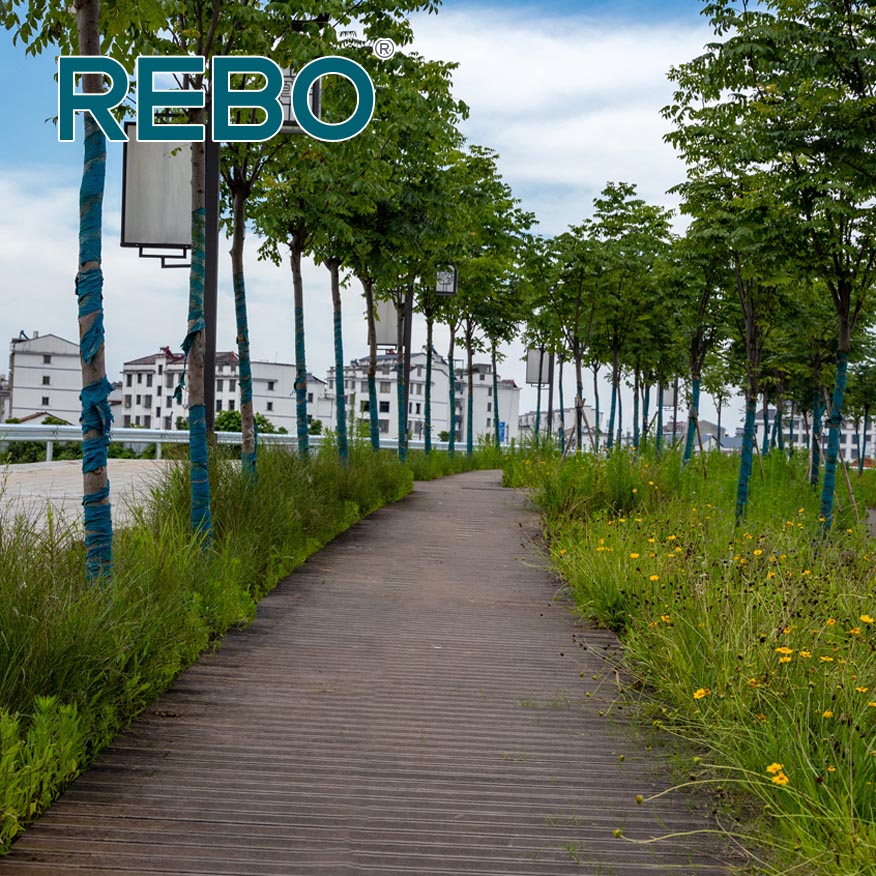What Are The Common Problems Of Bamboo Decking?
Bamboo material is a sustainable choice compared to composite, wpc and tropical hardwood, but as a relatively new material, some consumers will be confused and worried about the problems that possibly can arise. As is known to us, bamboo is a natural material and as a plant, contains sugars, worms, nutrients and can rot. However, this is the raw material, and it will be treated through many processes to form a board. REBO uses unique technologies to make bamboo suitable for outdoor use. Problems will commonly arise if the decking board is affected by moisture, mould or others. So can these elments damage a bamboo decking board?
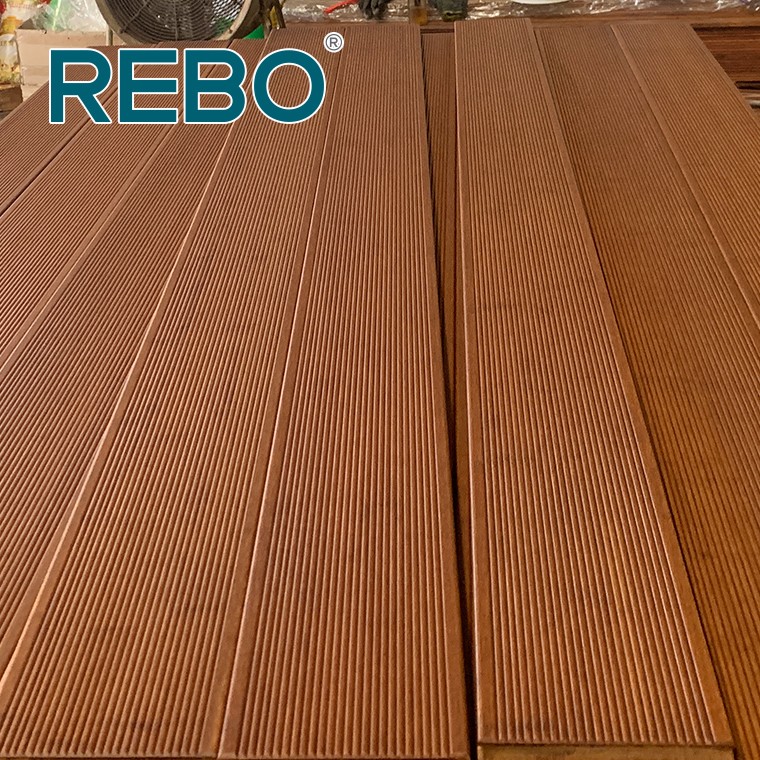
This question is similar to the question of whether a wooden deck can have problems. The answer for both materials is: yes, problems can occur but they can easily be prevented if the right decking board is chosen and installation and maintenance are carried out properly.
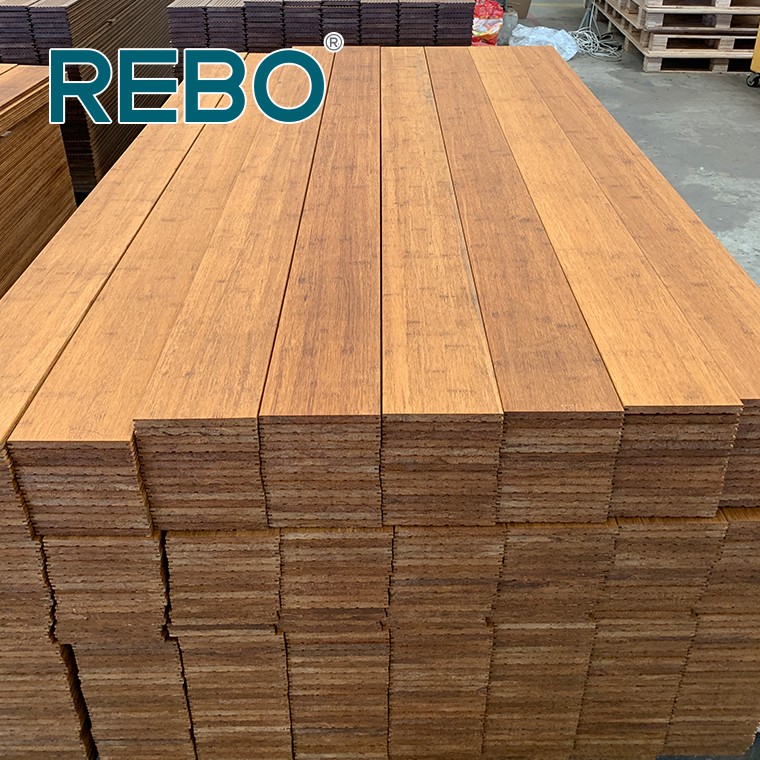
One of the greatest enemies to bamboo and wood when used outdoor is moisture. Moisture can cause the material swelling when absorbing too much of it and shrinking when releasing it. and the risk of mould is more likely happening in humid conditions than in dry conditions. That is why it is important to take ventilation into consideration when installing the bamboo decking boards. Keeping a deck clean is also important, to ensure ventilation remain open.
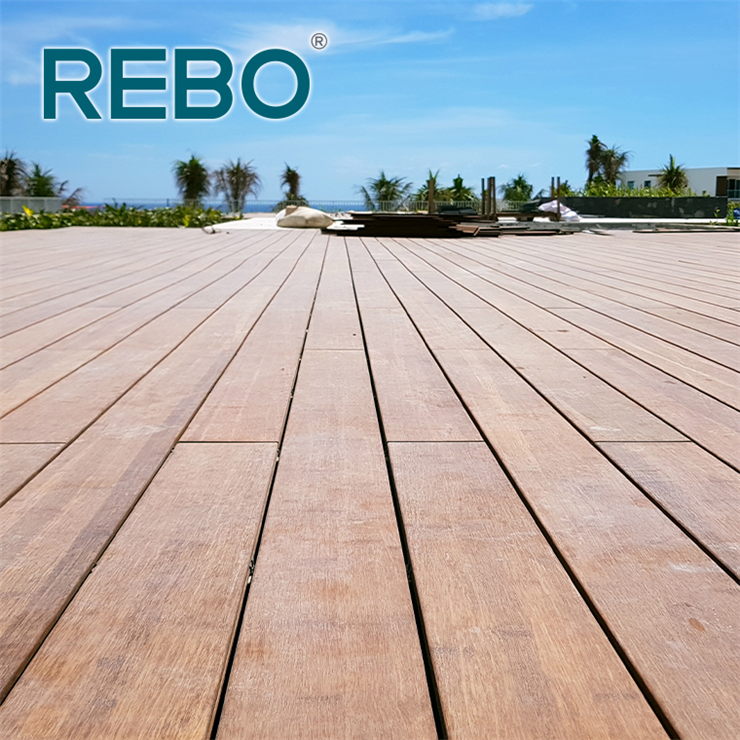
To what extent moisture can cause problems with bamboo decking is the moldy phenomenon. Under much moisture site, the boards are much more easier to get moldy, however the mold is just on the surface of the decking boards, for the boards are treated with high heating and carbonization process, and high pressed through 2700-ton hot pressing machines. The degree of pressing under high pressure is an important characteristic. Mold simply cannot penetrate easily into a high-density material. REBO bamboo has an extremely high density, therefore, it is highly resistant to moisture in comparison to wood and other bamboo decking material.
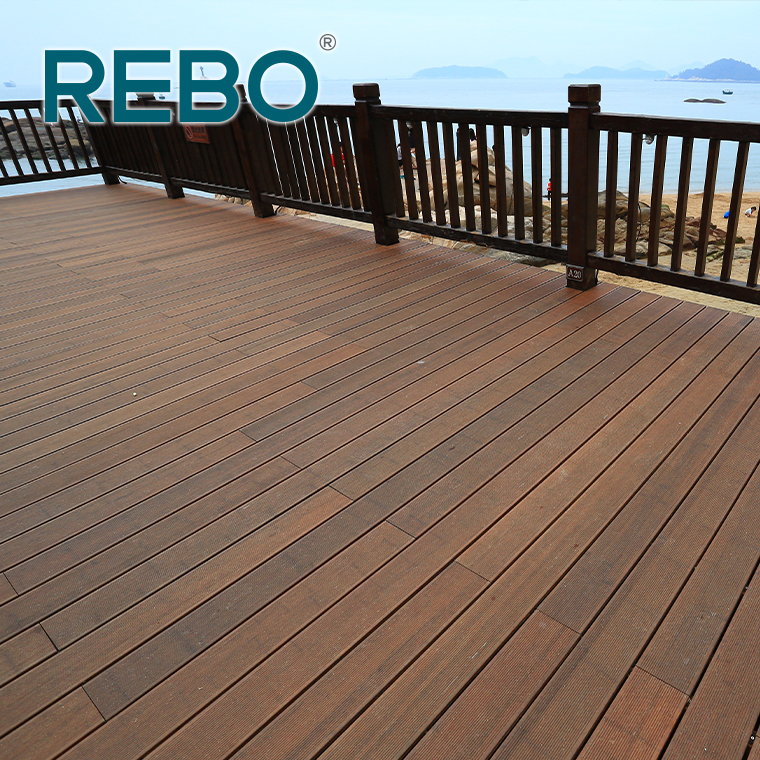
Some consumers will have a feedback that bamboo decking can become slippery. Slipperiness is not caused by the bamboo boards themselves, but by moss, moisture and dirt on the boards, which is also happened on wood decking and other decking material. Slipperiness occurs depends on the climatic conditions and the regular cleaning.
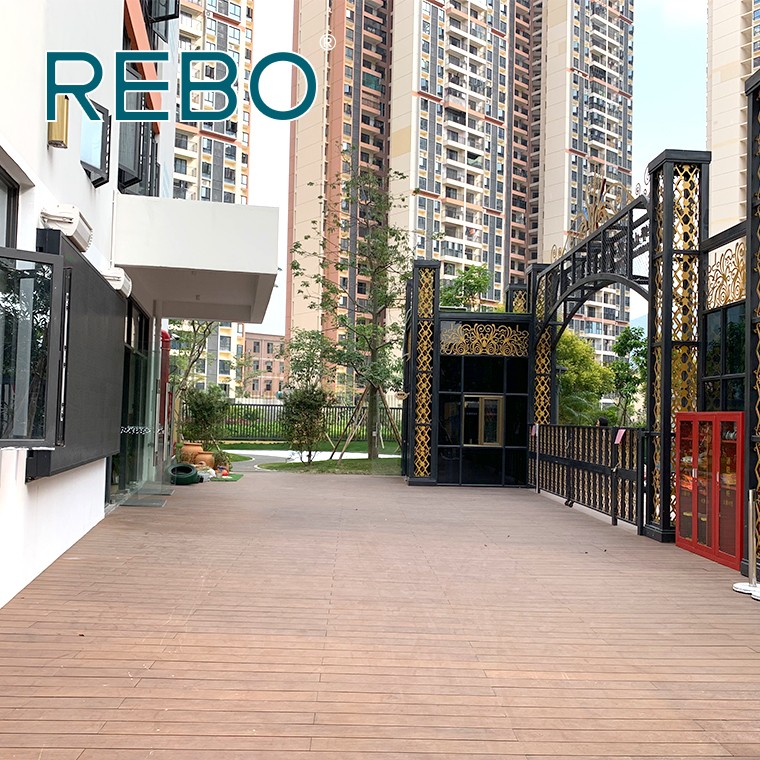
As mentioned above, the raw material of bamboo decking is moso bamboo, which is a kind of plant and originally consists mainly of worms, sugars, nutrients, etc. Fungi and insects are quite fond of sugar, so it is logical that unprocessed bamboo stems are quickly attacked. REBO will use high heating and high carbonized process to get rid of them. Through hot pressure technology, the decking board is very strong, hard and durable, a high-density board is created in which fungi find difficult to adhere. Without this treatment, bamboo decking boards can be attacked by fungi and insects. Due to this unique treatment, REBO can gurantee that the boards are rot resistant.
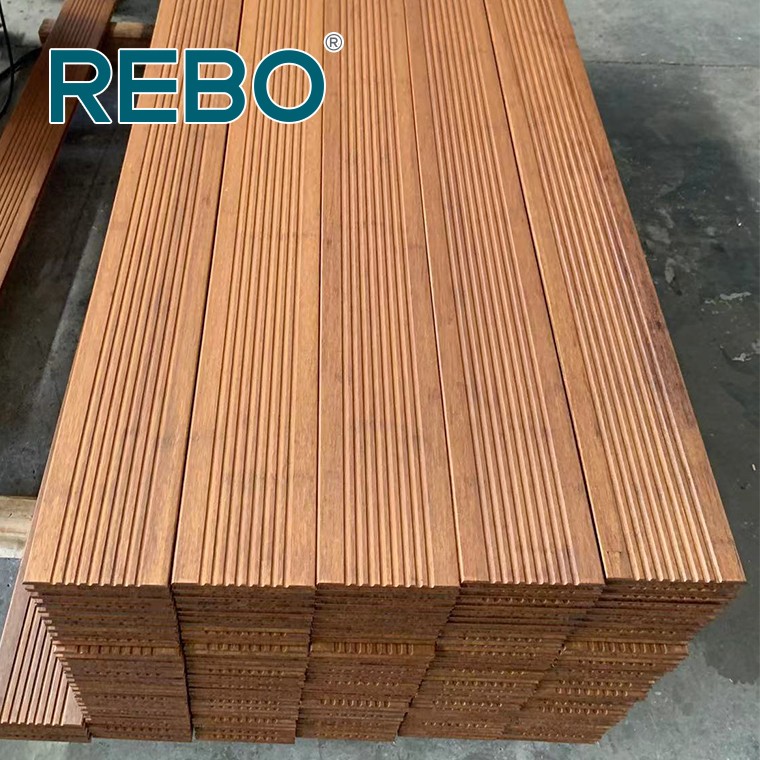
Color fading after a few months is still a problem and very annoy to consumers. Bamboo is a natural plant, so bamboo decking made from this raw material is also a natural product, clear oil is just used on them, and the board is used for outdoor, which will be influenced by sunlight, dust, rain, snow, etc. In that case, the oil will be faded after long time deposure on the air, and the board will become grey and look not so beautiful, however this is just happened on the surface of the board, meaning that the quality keeps good. That is why regular maintenance is required, to make the boards as beautiful as the original ones and prolong its use life.
